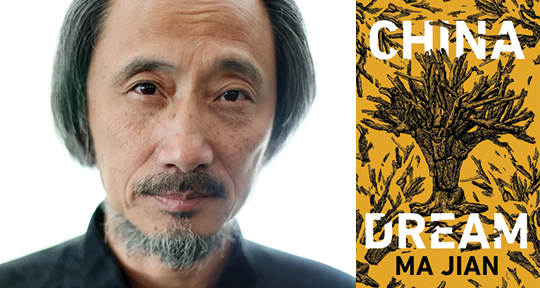China Dream by Ma Jian, translated from the Mandarin by Flora Drew, Penguin Books.
The controversy over the cancellation and restoration of two public talks involving Chinese dissident writer Ma Jian by the venue provider, Tai Kwun, in last November’s Hong Kong International Literary Festival, has added to the topicality of Ma Jian’s newly published translated work, China Dream. Bearing a politically sensitive title that blatantly alludes to President Xi Jinping’s project of rejuvenating the Chinese nation, his “Chinese Dream” as portrayed in the novel is quite an oddity as a translated work. The translated English version was published before the original Chinese version, which is forthcoming from a Taiwanese publisher; however, this is within expectations considering the sensitiveness of the subject matter. Ma Jian’s scathing critique of autocracy not only targets the national project of the present Chinese government but all forms of rigid, state-controlled policies that annihilate individual subjectivity.
China Dream is in line with the tradition of dystopian fiction in its imagination of negative government. Different from its Chinese predecessors, such as Lao She’s Cat Country, which is more akin to a Swiftian satire, or Chan Koon-chung’s The Fat Years, whose dystopian vision is embodied in the form of science fiction, China Dream is more psychological, interweaving an increasingly uncanny present with a spectral past that eventually encroaches upon it. China Dream is about the will to oblivion and subsequent self-destruction of a Chinese officer who rises to power after his betrayal of his Rightist parents in the Cultural Revolution. The narrative centers on how Ma Daode, the director of the fictional China Dream Bureau, who is simultaneously a representative of state corruption and moral guilt, falls from his prime, and kills himself in a paradoxical moment of delirium and recognition.



